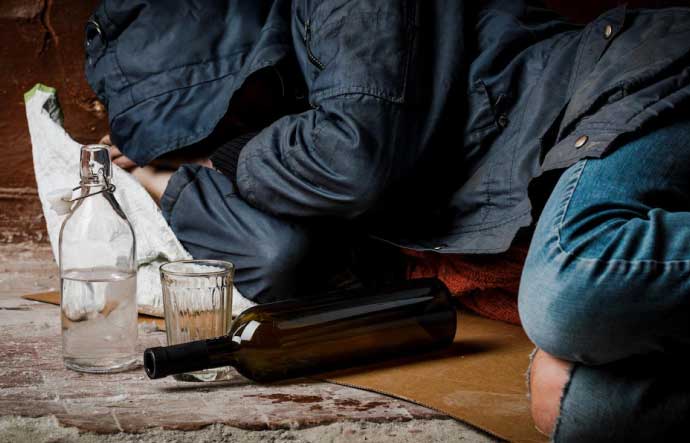The cycle of addiction can take over one’s life and has the power to completely transform it. Addictive behaviors have a tendency of impacting not only the individual suffering from the addiction, but those around them as well. Enjoying a cup of coffee or a cigarette every once in a while are two common examples of somewhat harmless indulges. For the majority of people who engage in these practices on a regular basis, the habits become more than harmless indulgences. We might start with a cup of coffee in the morning, and soon enough we can’t start the day without it.
Relationships, businesses, and life opportunities can all be affected by addiction. The good news is that there is hope for recovery. If you or a loved one is battling addiction, therapy can be an important part of your or their recovery. Therapy can help you recover from addictive behaviors by offering quality emotional support and healthy coping skills. Recovery takes time and often involves ups and downs, but it is well worth it in the end. Treatment is a demanding procedure, but it is not nearly as difficult as living with addiction on a daily basis. Therapy can help you improve your mental health and become the greatest version of yourself, no matter where you are on your recovery journey.
What is Addiction?
Addiction is a brain disorder in which a person becomes overly dependent on a substance or habit, resulting in negative repercussions. Addiction occurs when a person engages in destructive behavior on a regular basis and in significant quantities, making it extremely difficult to stop despite the consequences. Substance abuse, video games, and gambling are all examples of addiction.
Addiction may manifest itself in a variety of ways. Physical dependence characterized by withdrawal symptoms is often assumed to be required for someone to be diagnosed with an addictive disorder, but behavioral addiction can occur with all of the harmful ramifications in a person’s life even without physical issues that people who compulsively engage in drug and alcohol abuse face.

A behavior is not deemed as addictive behavior until;
- The behavior and/or inability to quit can cause the person to suffer from mental or physical health problems.
- The person’s behavior can be so disruptive, that he or she has difficulty in major relationships at home and, sometimes even at work.
- Due to the severe nature of addictions like gambling, a person with a gambling addiction may gamble away their home, lose their job, and be thrown into bankruptcy which is a direct result of the person’s continuous, intense, or chronic involvement in the behavior.
- Despite the consequences, when one individual is unable to quit engaging in the destructive behavior.
Are some people more susceptible to addiction?
Addictions or compulsions usually develop as a result of a psychological condition, such as depression, or even as a coping mechanism in response to difficult situations and emotions. Engaging in an addictive habit might momentarily ease stress or anxiety from up to a few minutes to several days. Regardless of the difficulties in identifying what causes certain people to be more susceptible to addiction than some others, numerous studies have indicated that a variety of factors can play a key role.
Environment, genetics, family history, personality traits, and even stress can all influence whether or not someone will attempt drugs or alcohol. Experimenting with different substances does not inherently lead to addiction; nonetheless, addictions can develop when several factors contribute to the substance use.
Whereas, most behavioral addictions, such as internet addiction, gambling or shopping addiction can have strong and seemingly non-specific associations with depression and anxiety disorders. As a result, the person becomes pathologically fixated on obtaining reward from the action and/or obtaining relief from discomfort through the behavior. The person will most likely have difficulties abstaining from the activity, will have tremendous urges and difficulty fighting them, and will be unaware of the issues that have arisen as a result of their behavioral addiction.

How can therapy help?
Addiction is best handled with treatments as it is such a serious psychological condition. It’s tempting to believe and convince ourselves that we can handle the addictive behaviors on our own, but recovery from addiction is complex and challenging, therefore it is best to seek professional support.
Individuals struggling with addiction are frequently in excruciating pain, which is why working on oneself in rehabilitation is so beneficial. When we are in pain, working with a therapist who can acknowledge how we are feeling can be therapeutic, and ultimately help us get closer to where we want to be in life.
Therapy teaches us the means to successfully cope with life’s obstacles and provides a safe environment in which we can explore our psychological pain. This is crucial to recognizing the addictive behaviors and then working towards a path for recovery.
Therapy with Talktime
Therapy has been shown to be one of the most effective methods for treating addiction. Different types of therapy are effective for different people and addictions, so it’s crucial to discover the right one for you. Talktime can guide you towards finding the right therapy for you or your loved one’s behavior and make them feel much better.
A treatment often used to treat addiction is cognitive behavioral therapy (CBT). CBT examines how our thoughts influence our moods, which in turn influences our behavior. If you wish to change your addiction-related behaviors, you can work with a CBT therapist to identify the thoughts or feelings that drive these addictive behaviors and gain enough skills to break the thoughts, feelings and actions cycle.
Individual therapy is a great technique to work through problems one-on-one, but group therapy also allows you to connect with others who are dealing with similar experiences and creates a real sense of community. Joining group therapy may seem intimidating, but speaking with and learning from others who are also on the road to recovery from addiction may be motivating. It can be insightful and therapeutic to connect with others who share your experience, as well as to open up about your addiction. There are a variety of methods to get engaged with a group, including therapist-led group therapy.
Talktime provides a safe space for those dealing with addiction, with online one-on-one therapy sessions from the comfort of your home. With flexible, online therapy available in just a few clicks, Talktime has everything you need to get started right away. It is important to remember that addiction is completely treatable, and anyone going through it deserves to be free of it!





